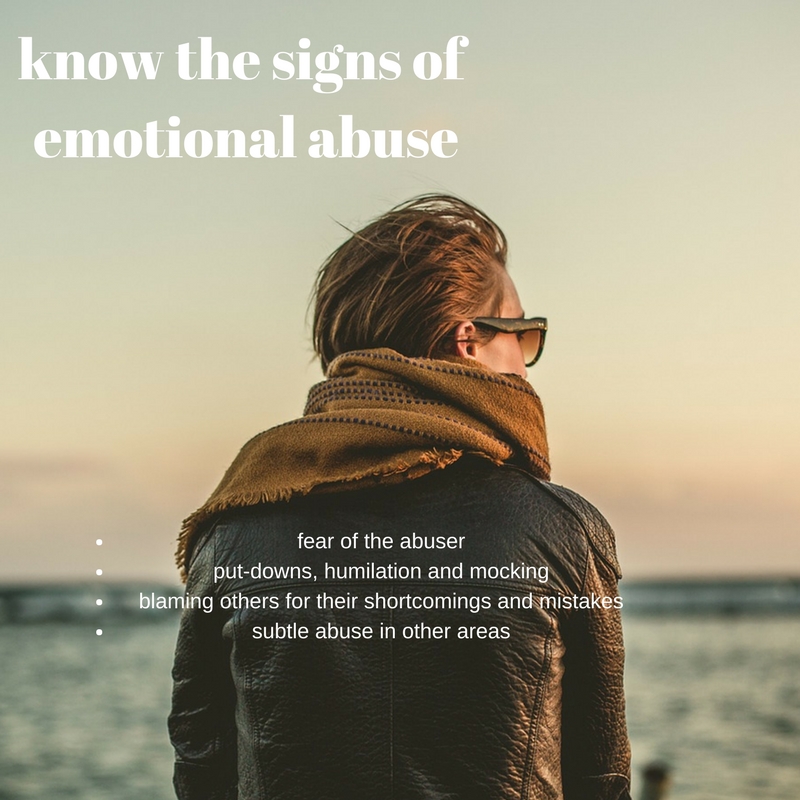
Signs of Emotional Abuse
Being in a relationship is complicated, messy, and sometimes even frustrating. However, with hard work and dedication, it can also be incredibly rewarding and fulfilling. Unfortunately, there are many relationships that are far from the fairytale that the individuals had hoped for. Over the last few decades, the signs of a physically abusive relationship have become much more common knowledge, and more people are able to avoid or leave them than ever before. It is also becoming easier to recognize other overt types of abusive relationships such as sexual, verbal, and financial abuse. Emotional abuse is a more difficult type of abusive relationship, and many people aren’t even aware that they may be a part of one. Not only that, but emotional abuse isn’t just common in spousal relationships, it’s common among parent-child relationships, friendships, and even working relationships. While this article is intended to create awareness of this type of abuse, it does not replace getting actual help from a counselor or other trusted friend or mentor.
Fear is probably the most obvious way to detect this abuse. The abused member of the relationship appears to be very afraid of what the abuser might think. They are afraid to make any decision on their own. While it is typical behavior for spouses to check in on each other when it comes to making plans or financial decisions, it is not typical behavior for someone to act as though even the smallest decision is something that will set their abuser off.
Put-Downs, humiliation, and mocking are also more overt signs of emotional abuse. When someone is constantly pointing out faults and weaknesses about a loved one, friend, or child to others, then it is very likely that they are doing worse when no one is watching. This type of behavior may not be overt all of the time, though, as the abuser may prefer to avoid confrontation with someone who might stick up for the person. They may also constantly invalidate the abused person’s opinions and feelings, or just show their contempt in their body language. An example of this may be eye rolling, folding arms, or otherwise indicating that they want the abused person to stop talking.
Blaming others for their shortcomings and mistakes is another way to detect this type of abuse. If the abuser cannot seem to admit when he or she is wrong, and often deflects fault onto others, then they are likely using this as a weapon to control others and avoid change themselves. When they have this characteristic, it’s likely that they also don’t ever apologize, and are masters of excuses for their behavior.
Other subtly abusive behaviors will indicate emotional abuse. For example, withholding sex to get what they want (which can also be considered sexual abuse), verbally demeaning words, constant criticism, and making themselves emotionally unavailable.
Emotional abuse can have just as many adverse effects as other types of abuse, and most of the time if there is another type of abuse going on, then emotional abuse also part of it. If you are being emotionally abused, please let your doctor or a trusted friend know. Take some necessary steps to take back your independence and confidence. If you think you may be abusing someone in your life, be hopeful that you can change and that you can hold onto the people in your life that you love without feeling the need to control them. Life free from abuse toward or from you will be infinitely more enjoyable!
At Lifeline Connections in the Vancouver, WA or Portland, OR area, we provide recovery that treats the whole person. Our out patient and residential treatment program provide customized treatment no matter what you need it for. Whether you are struggling to take back your life, or someone you love needs help, we are here to answer your questions and concerns. Email [email protected] or call 360-397-8246.
